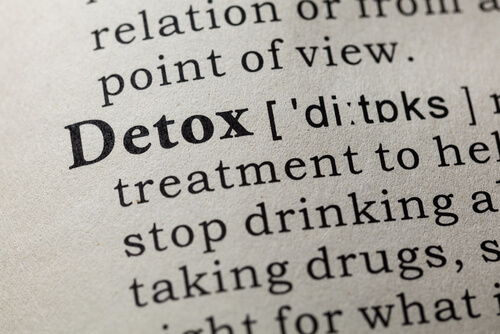All About the Heroin Detoxification Process
Heroin detoxification is the process of eliminating heroin and associated substances from the body.1 Thorough detoxification is the first stage of heroin addiction treatment and it can take place in a wide range of diverse settings. The level of intensity depends on individual circumstances, which is why there are multiple levels of detoxification service intensity available within each of these settings.2
Seeking help in a heroin detox facility or another facility that delivers medically assisted detoxification services is the first step in heroin addiction treatment. Effective detox is vital to the success of recovery from an addiction within a complete and comprehensive treatment. The purpose of medication is to facilitate the detox process and suppress withdrawal symptoms.3
To be effective, an approach to detox and subsequent heroin addiction treatment should be individualized. The process should start with an in-depth case assessment of the individual looking to overcome addiction.
It is important that individuals who go through detox continue with tailored treatment and be put into contact with substance abuse treatment providers,2 otherwise they are likely to resume heroin use.3
Methods of Heroin Detox
Although there are twomethods of heroin detox, natural and medication-assisted, only the latter is safe, legitimate, and worthy of consideration. Natural heroin detox, widely known as “cold turkey”, is extremely dangerous as it has the person enduring the uncomfortable withdrawal symptoms that accompany the process. The success rate is extremely low, while the risk of a fatal outcome due to lack of medical care, relapse, and overdose is high.2
That leaves the medication-assisted detox option as the only legitimate choice, as it has the individual using a synthetic drug under supervision to more gradually overcome their physical dependence on heroin.

Heroin Detoxification Process
The heroin detox process should consist of three essential components:2
- Evaluation
- Medical stabilization
- Fostering patient readiness for treatment
Heroin detox facilities across the United States offer medical heroin detox as their primary form of care. At a medical heroin detox facility, the individual is given a synthetic opioid that mirrors many of the same effects as the drug itself. Patients in these detoxification centers are given medication-assisted treatment which mainly relies on opioids such as methadone, buprenorphine, or naltrexone.3 The controlled detoxification process minimizes discomfort while enabling the recovering individual to re-establish normal brain function and decrease cravings.3
When the individual first arrives at a heroin detox facility, they will be assessed in terms of the seriousness of their addiction and their overall health. The assessment will serve as the “starting point” for the detox process and treatment. Over time, the individual will receive smaller and smaller doses of the synthetic opiate – thus lessening the withdrawal symptoms they experience during the process. Reduced withdrawal symptoms are the primary appeal of a medical detox.
Heroin Detox Locations
Heroin detox facilities can be located just about anywhere. Recovering individuals may travel daily to heroin detox facilities. Certain detox centers exclusively offer detoxification services and recovering individuals are encouraged to continue treatment at another facility that offers a more comprehensive program.
In some facilities, individuals undergo detox as a part of a rehabilitation program. If, however, the rehab center does not offer detox, the individual may be referred to a recommended facility in the area. They will need to complete heroin detox at this facility before entering the main treatment program which includes counseling, aftercare, and other treatment options.
Assessment dimensions which determine a recovering individual’s placement within a detoxification setting and the level of detoxification intensity required are as follows:2
- Acute Intoxication and/or Withdrawal Potential
- Biomedical Conditions and Complications
- Emotional, Behavioral, or Cognitive Conditions and Complications
- Readiness to Change
- Relapse, Continued Use, or Continued Problem Potential
- Recovery/Living Environment
The Importance of Heroin Detox
Successfulheroin detoxis the first step in theaddiction recovery process. Until the individual has overcome their physical addiction to heroin, they are simply not in the mental or emotional condition needed to move onto heroin counseling and therapy incorporated in rehabilitation.
Detoxification staff providing support should be familiar with co-occurring mental health disorders in order to recognize signs and symptomsof possible mental health issues.2
Detoxification is an important component in the continuum of services for the treatment of substance abuse. Although a completed detox does not indicate whether treatment will be successful and the risk of relapse is high among recovering heroin users, even immediately upon successful detoxification, detox is an important first step in the process.4
Nevertheless, completing detox is an accomplishment that the individual can be proud of and use this confidence to carry them to success in the remainder of the recovery journey.
Frequently Asked Questions
How to Detox From Heroin?
Detoxification or “detox” is the process during which the body rids itself of harmful substances. This should be the first step in a treatment program.
Medications are used over the course of the detox process as the first line of addiction treatment. Their purpose is to help patients looking to overcome addiction manage withdrawal symptoms and make an easier, safer transition into the next stage in their recovery.
Detoxification can also help reduce the intensity of a person’s substance use disorder.2
How to Help a Person With a Heroin Addiction Detox?
Helping a person detoxify outside of a detox facility is potentially dangerous, as well as likely to be ineffective. The most effective way to support a person’s detoxification and rehabilitation process is to seek support from addiction support specialists.
Why Should Heroin Detox Be Medically Supervised?
Heroin detox should be medically supervised for at least two reasons:
- The patient is more likely to succeed and make a transition into a life of sobriety.
- The health risks are greatly reduced: unassisted withdrawal can be deadly.4
What Is the Process of Detoxification for Heroin?
The heroin detox process is a set of interventions aimed at managing acute intoxication and withdrawal.2 When medically assisted, detoxification can help a person safely manage these symptoms and hopefully pave the way for effective long-term addiction treatment.4
Although the withdrawal symptoms a person experiences during the detoxification stage can be intimidating, medication can effectively combat these symptoms and make the experience less uncomfortable.
Still, detox is just the beginning of treatment. Real work begins after heroin has left the body. For the recovery to be successful and for the person to achieve long-term abstinence, treatment should last a lifetime.
Consequently, detoxification programs that do not offer rehabilitation services face a major challenge as they seldom provide effective linkages to follow-up treatment and rehabilitation services.2 Establishing this linkage is central to the mission of intensive outpatient and partial hospitalization programs.2
What Does Your Body Go Through During Heroin Detox?
Individuals experience acute withdrawal symptoms during the detoxification process. Heroin withdrawal typically begins 8 to 12 hours following the last dose and begins to subside within 3 to 5 days.2
How Long Does It Take to Detox From Heroin?
Detoxification from heroin may take several days to a week or more.5 The duration and severity of heroin detox and withdrawal symptoms depend on the level of dependence and duration of abuse.
The process may not be safe or effective unless medically supervised, which is why the optimal setting for this is a specialized inpatient detoxification facility or an outpatient facility with close medical supervision.5
What Is the Plan of Care for Clients Who Want to Detox From Heroin?
A comprehensive care plan goes beyond the detox process and the focus is on rehabilitation which addresses individual drug use patterns and associated medical, mental, and social problems.6Detox helps users reach physical and mental stability to embark on the road to lasting recovery. The individual is normally given maintenance therapy as part of their consequent treatment/rehabilitation which involves a constellation of ongoing therapeutic services.2
Individuals need to go through the detoxification process in order to be admitted into an addiction treatment program, unless the program incorporates detoxification services. However, most inpatient treatment programs do.
How to Find the Right Heroin Detox Facility?
Regardless of its form and method of use, heroin is a highly addictive drug with a rapid effect. The drug binds itself to opioid receptors associated with pain and pleasure, causing a surge of dopamine and euphoria.
The brain remembers the connection between this rewarding sensation and external cues leading to it. Since the drug has caused lasting changes to the brain’s reward circuit, uncontrollable cravings can be triggered upon exposure to these cues. This is a reflex that heroin rehab centers attempt to help users forget.
The American Society of Addiction Medicine has defined the five Adult Detoxification placement levels and standards of care for detoxification services:2
- Ambulatory detoxification without extended onsite monitoring
- Ambulatory detoxification with extended onsite monitoring
- Clinically managed residential detoxification
- Medically monitored inpatient detoxification
- Medically managed intensive inpatient detoxification
The level of care a heroin user needs will depend on their individual case. Therefore, it’s important that they find a center that can assess their condition accurately and provide an appropriate, individualized plan.
Sources:
- Substance Abuse and Mental Health Services Administration. (2020). TIP 63: Medications for Opioid Use Disorder.
- Substance Abuse and Mental Health Services Administration. (2015).TIP 45: Detoxification and Substance Abuse Treatment.
- National Institute on Drug Abuse. (2019). Treatment Approaches for Drug Addiction DrugFacts.
- National Institute on Drug Abuse. (2020). Principles of Effective Treatment.
- Substance Abuse and Mental Health Services Administration. (2014). What Is Substance Abuse Treatment? A Booklet for Families.
- National Institute on Drug Abuse. (2020). Drugs, Brains and Behavior: The Science of Addiction.
Heroin Rehabilitation Directory
Select a state to learn more about your treatment options.- Alabama
- Alaska
- Arizona
- Arkansas
- California
- Colorado
- Connecticut
- Delaware
- District Of Columbia
- Florida
- Georgia
- Hawaii
- Idaho
- Illinois
- Indiana
- Iowa
- Kansas
- Kentucky
- Louisiana
- Maine
- Maryland
- Massachusetts
- Michigan
- Minnesota
- Mississippi
- Missouri
- Montana
- Nebraska
- Nevada
- New Hampshire
- New Jersey
- New Mexico
- New York
- North Carolina
- North Dakota
- Ohio
- Oklahoma
- Oregon
- Pennsylvania
- Rhode Island
- South Carolina
- South Dakota
- Tennessee
- Texas
- Utah
- Vermont
- Virginia
- Washington
- West Virginia
- Wisconsin
- Wyoming
Help for Heroin Addiction
Do you know someone suffering from heroin addiction? Help is available. To find out more, please choose the selection that applies to you or the person suffering from addiction:
Fill out the form below to be contacted.
Repair the damage and start fresh today!

